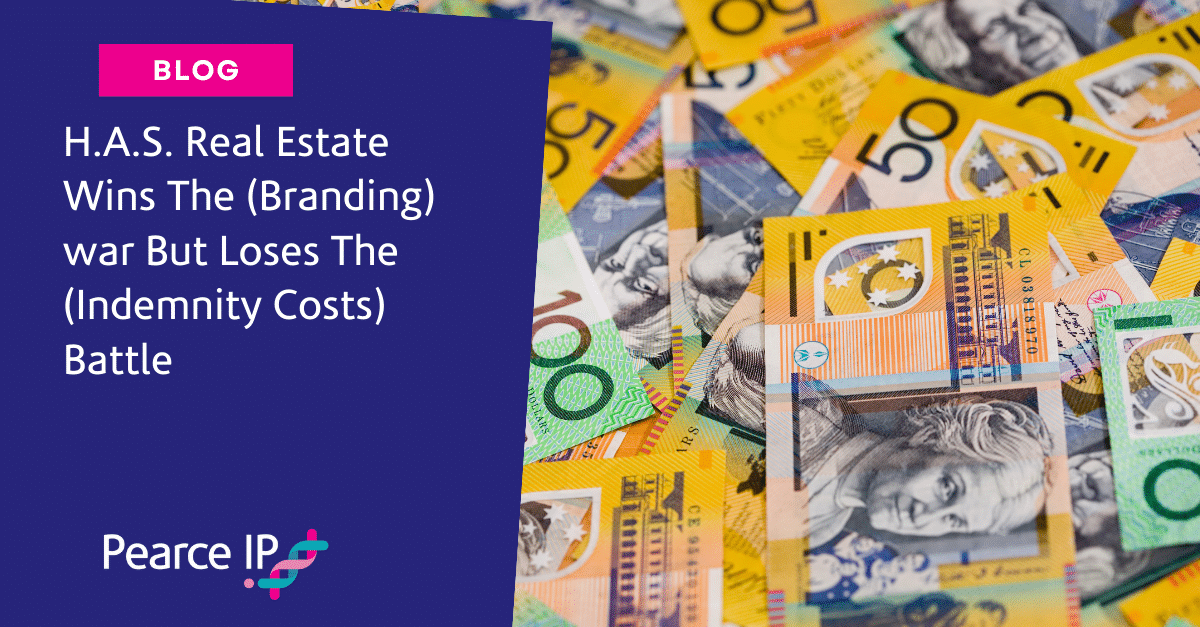Date: 02 April 2024
Court: Full Court of the Federal Court Australia
Adjudicator: Yates, Markovic and Kennett JJ
Date:
Court:
Adjudicator:
02 April 2024
Full Court of the Federal Court Australia
Yates, Markovic and Kennett JJ
In a decision handed down on 2 April 2024 by the Full Federal Court, H.A.S Real Estate (H.A.S) has failed in its application for indemnity costs. The Court’s unanimous judgment by Justices Yates, Markovic and Kennett emphasises the critical importance of ensuring that an offer of compromise aligns with the orders and remedies which a party can receive through the court process. In this case, H.A.S’ offer included “an extraneous payment unconnected to the fate of the litigation”.
The case involved a Federal Court branding dispute between two real estate groups operating in Sydney. The Agency Group and its subsidiaries (the Agency) brought proceedings against H.A.S alleging that H.A.S had infringed the Agency’s registered trade mark rights and engaged in misleading and deceptive conduct in contravention of s 18 of the Australian Consumer Law. Justice Jackman (the primary judge) dismissed the Agency’s lawsuit in May 2023. The Agency appealed to the Full Federal Court and, was dealt a second setback when the Court dismissed the appeal and ordered that the Agency pay H.A.S’ appeal costs.
H.A.S sought an order that its costs of the appeal should be paid on an indemnity basis because the Agency unreasonably failed to accept its offer of compromise. The H.A.S offer that was made during the appeal (the Second H.A.S Offer) largely mirrored an offer made in the primary proceeding (the First H.A.S Offer). Regarding the First H.A.S Offer, the primary judge found it was “unreasonable” for the Agency to reject the offer and ordered it to pay H.A.S’ costs of the primary proceeding on an indemnity basis from the date the offer was rejected.
The Second H.A.S Offer included an additional $10,000 to be paid to H.A.S for the cost of re-branding. The Agency asserted that rejecting the Second H.A.S Offer was not unreasonable, for two reasons:
- it was not unreasonable for the Agency to appeal the primary judge’s decision, given the evaluative nature of legal questions arising where there are issues of deceptive similarity for brands; and
- at the time the offer was made, the only justifiable financial contribution the Agency could have paid to H.A.S as a compromise, was a reasonable proportion of H.A.S’ appeal costs at that time. The total financial contribution sought by H.A.S ($30,000) exceeded its actual appeal costs at the date of the Second H.A.S Offer.
The Court rejected the order for costs to be paid on an indemnity basis. The Court agreed with the Agency that it was not unreasonable for it to reject the Second H.A.S Offer, because:
- at the time the offer of compromise was made, it could not be said that the appeal had no prospects of success or was “plainly unmeritorious”; and
- H.A.S would not have been able to recover the re-branding costs from the Agency by way of court order.
The Court also noted that the offer of compromise did not purport to affect the costs orders made by the primary judge. Had the appeal been successful, it is likely that the primary judge’s costs orders would have been set aside. However, acceptance of the offer meant that the adverse costs order made below would have remained in place, even though the award of those costs was in dispute in the appeal.
This case illustrates:
- the precision required in crafting offers of compromise to leave open the option of indemnity costs.
- the importance of ensuring that any compromise offer aligns with the orders and remedies which a party can receive through the court process.
In this case, a key factor militating against an indemnity costs order was that the offer included a requirement for the Agency to contribute to the payment of H.A.S’s rebranding costs when H.A.S. “… was never able to recover its costs of re-branding (and, therefore, any contribution to those costs) from the Agency by way of court order in the appeal or in the primary proceeding”.
About Pearce IP
Pearce IP is a boutique firm offering intellectual property specialist lawyers, patent attorneys and trade mark attorneys to the life sciences industries (in particular, pharmaceutical, biopharmaceutical, biotech, ag-tech and food tech). Pearce IP is the 2021 ‘Intellectual Property Team of the Year’ (Lawyers Weekly Australian Law Awards) and was shortlisted for the same award in 2022. Pearce IP is ranked in IAM Patent 1000 and Managing IP (MIP) IP Stars, in Australasian Lawyer 5 Star Awards as a ‘5 Star’ firm, and the Legal 500 APAC Guide for Intellectual Property.
Our leaders have been recognised in virtually every notable IP listing for their legal, patent and trade mark excellence including: IAM Patent 1000, IAM Strategy 300, MIP IP Stars, Doyles Guide, WIPR Leaders, 5 Star IP Lawyers, Best Lawyers, and Australasian Lawyer 5 Star Awards, and have been honoured with many awards including Australian Law Awards – IP Partner of the Year, Women in Law Awards – Partner of the Year, Women in Business Law Awards – Patent Lawyer of the Year (Asia Pacific), Most Influential Lawyers (Changemaker), among other awards.

Naomi Pearce
CEO, Executive Lawyer (AU, NZ), Patent Attorney (AU, NZ) & Trade Mark Attorney (AU)
Naomi is the founder of Pearce IP, and is one of Australia’s leading IP practitioners. Naomi is a market leading, strategic, commercially astute, patent lawyer, patent attorney and trade mark attorney, with over 25 years’ experience, and a background in molecular biology/biochemistry. Ranked in virtually every notable legal directory, highly regarded by peers and clients, with a background in molecular biology, Naomi is renown for her successful and elegant IP/legal strategies.
Among other awards, Naomi is ranked in Chambers, IAM Patent 1000, IAM Strategy 300, is a MIP “Patent Star”, and is recognised as a WIPR Leader for patents and trade marks. Naomi is the 2023 Lawyers Weekly “IP Partner of the Year”, the 2022 Lexology client choice award recipient for Life Sciences, the 2022 Asia Pacific Women in Business Law “Patent Lawyer of the Year” and the 2021 Lawyers Weekly Women in Law SME “Partner of the Year”. Naomi is the founder of Pearce IP, which commenced in 2017 and won 2021 “IP Team of the Year” at the Australian Law Awards.

Helen Macpherson
Executive, Lawyer (Head of Litigation –Australia)
Helen has over 25 years’ experience as an intellectual property specialist and is recognised as an industry leader. Helen advises on all forms of intellectual property including patents, plant breeder’s rights, trade marks, copyright and confidential information.
Throughout her career, Helen has maintained a strong focus on high-value patent mandates involving complex technologies. In these mandates, Helen has been able to draw upon her technical training in biochemistry and molecular biology, as well as her ability to up-skill swiftly in relation to diverse technologies. Helen’s patent work has encompassed the technical fields of inorganic, organic, physical and process chemistry, biochemistry, biotechnology (including genetics, molecular biology and virology) and physics.
Helen is a member of the Intellectual Property Committee of the Law Council of Australia, as well as a member of the Intellectual Property Society of Australia and New Zealand.

